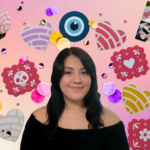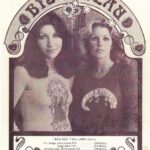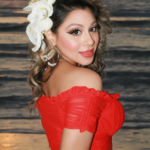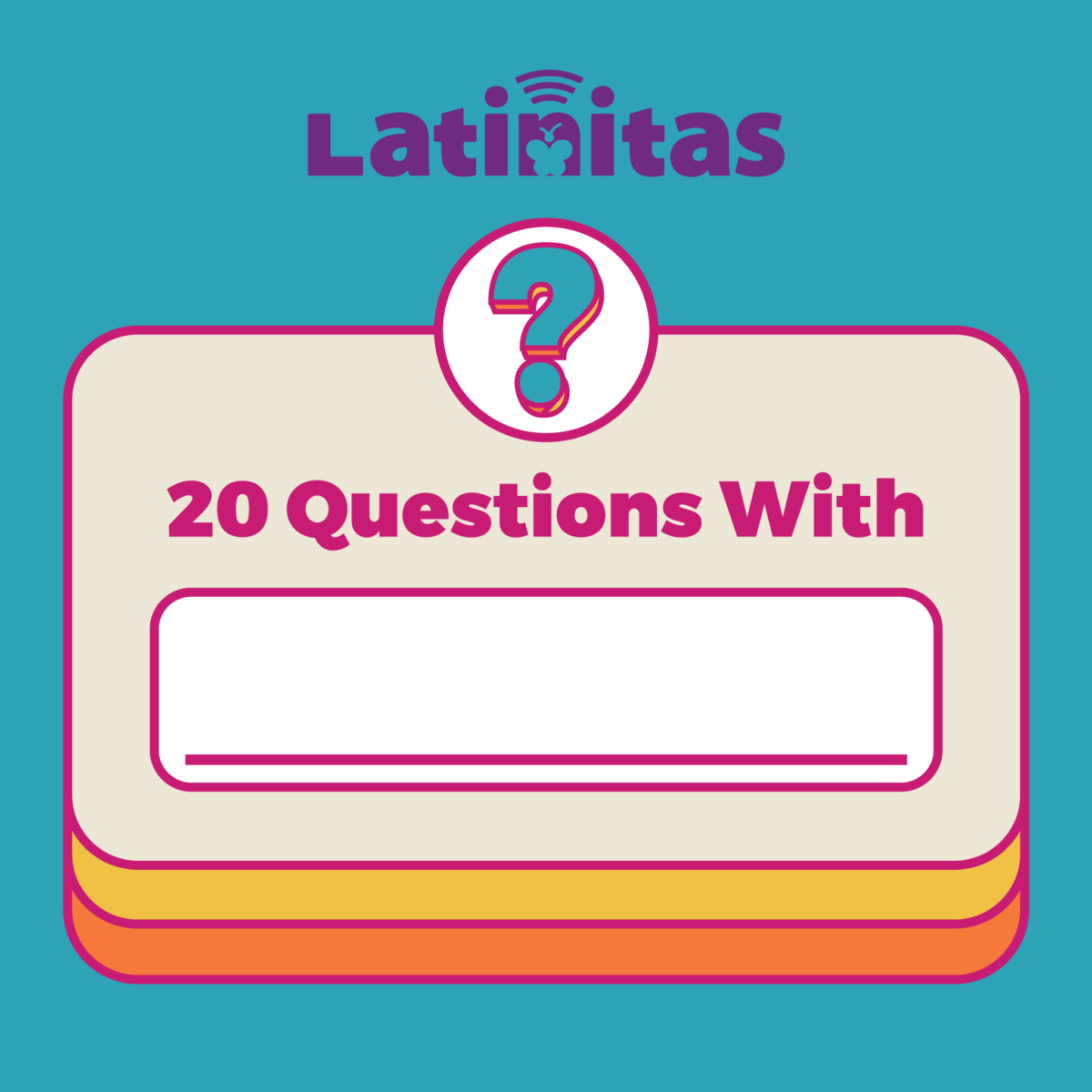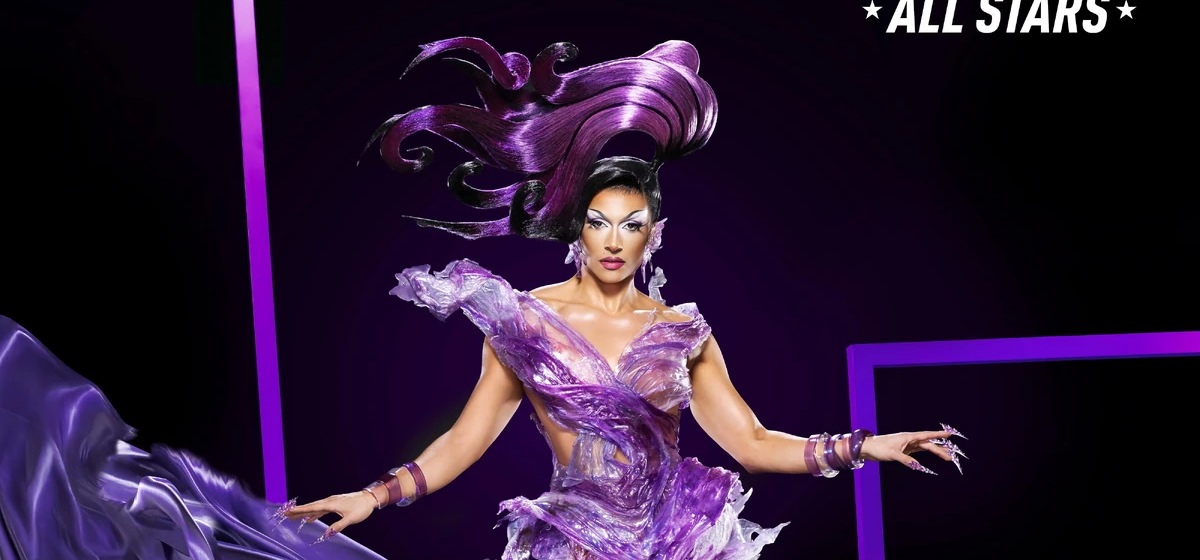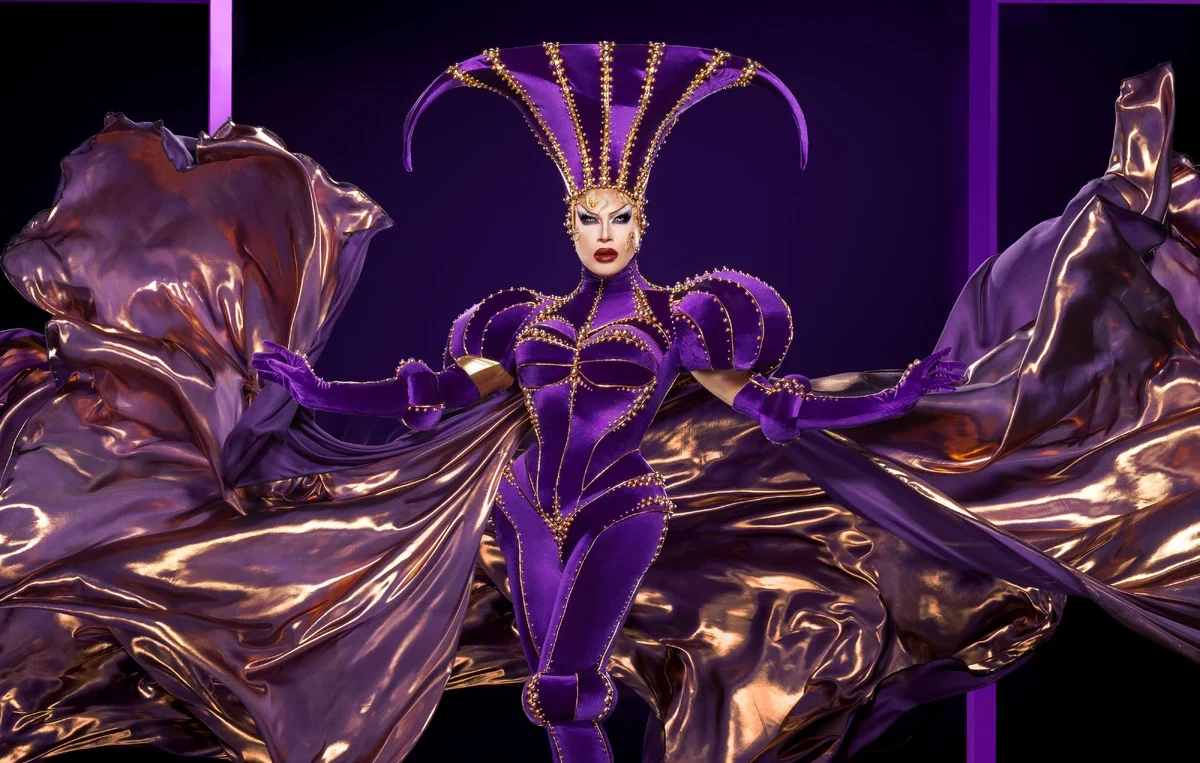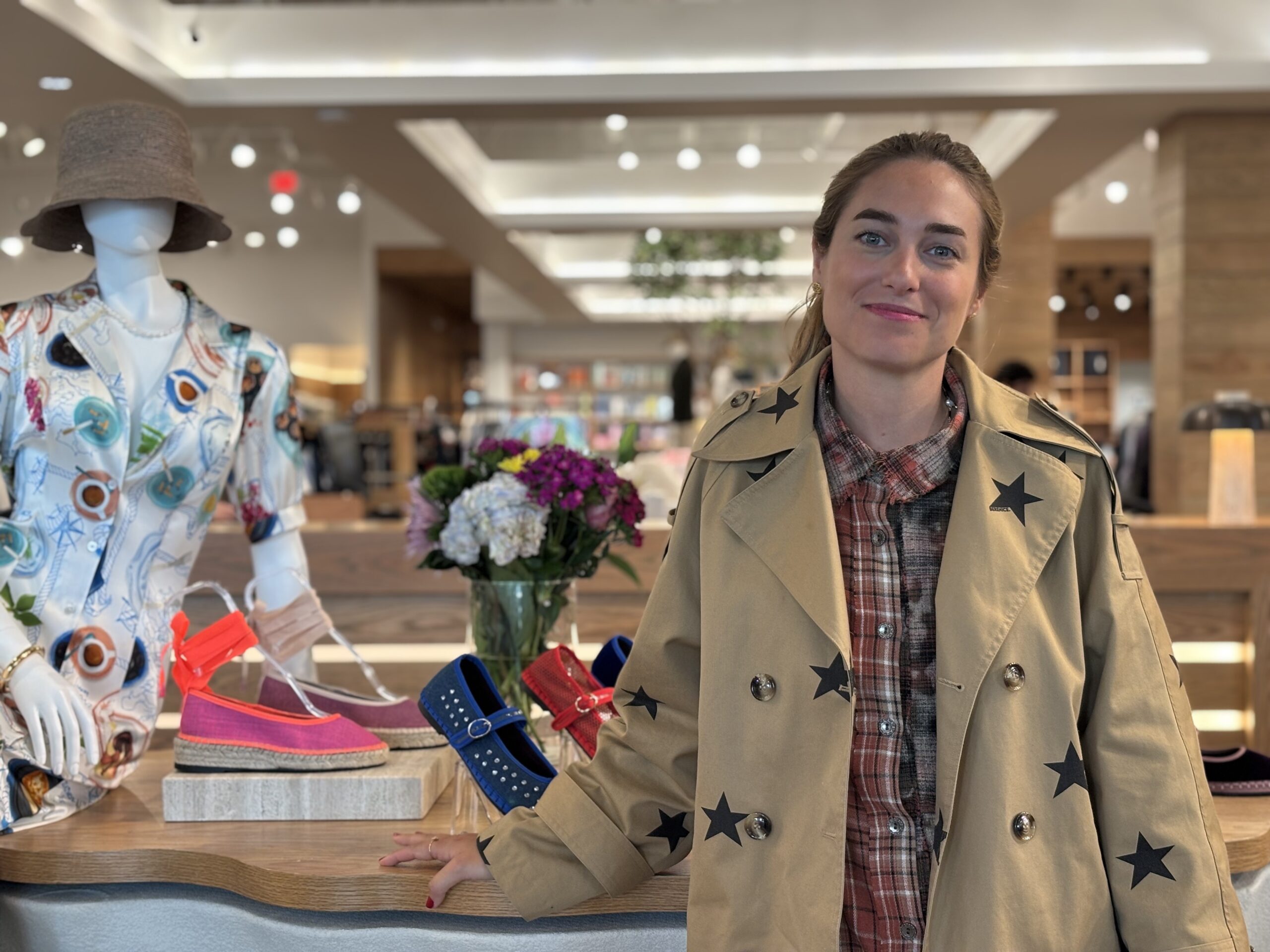Hosted by Carlota Vásquez
Editor’s Note: This is a transcription of Latinitas Magazine’s SoundCloud podcast “20 Questions With,” where we invite bold and creative individuals to discuss their experiences and background. Listen along by clicking the link!
Hola Chicas! Welcome to 20 Questions With, a podcast in conjunction with Latinitas Magazine. Latinitas Magazine is a strong voice for Latina and POC Youth, which is why the hosts of 20 Questions With are all young Latinas who are looking to gain experience in innovative and creative fields just like you!
In each episode, you’ll hear from striking individuals who are inspiring today’s youth with their passion, motivation, and grit.
Today, join Volunteer Writer Carlota Vásquez while they sit down and ask 20 Questions With two striking individuals: Alaina Lavoie and Adriana White.
Before we get started, here’s what you should know about today’s guests:
Alaina is an award-winning editor, communications manager, writing coach, and journalist. Alaina is currently the Communications Manager for a literary nonprofit called We Need Diverse Books.
According to Adriana’s website, they are an “Autistic librarian and former special education teacher.” Adriana is passionate about creating accessible schools and libraries for students with disabilities, especially Autism. Adriana is also passionate about promoting children’s books that feature autistic characters.
We’re so excited to talk with Alaina and Adriana, so let’s get started with today’s show.
CARLOTA: So first of all, just quickly say hello again. And if it’s OK with you guys, let’s get right to it. One of the things I wanted to ask you is that as a neurotypical person, sometimes I find myself having trouble understanding people in my life who have a disability. I know a few people with autism. So I would like to ask you what is an everyday aspect of the life of an autistic person that someone who is not autistic would probably overlook?
ALAINA: That’s a little bit of a tough question. Because we all experience autism so differently, I can only speak to my personal experience. I think many people overlook that as an autistic person, I don’t go a single day without stimming or self-stimulating, which is different for everybody. I would say most autistic people do stim. Well, I wouldn’t know that they stim every day. Most people do regularly stim, but our stims are different from each other.
For me, it looks like a weird dance in my seat or even off my seat through the apartment. I do a lot of hand flapping, hand tapping, kicking, leg tapping, twirling. I have a lot of quote-unquote, socially acceptable stems that I can do out in the world if I do have to interact with people, and I’m aware that I might get discriminated against. And I think that that’s just something people don’t think about because it’s not ingrained in their day-to-day life. But for me, that’s an absolute necessity. It goes without saying, and most days, I would say I need at least a little bit of time to myself to just stim my heart out for the day. It helps to get my energy out and bring myself back into focus, and think about ideas and about what I’m doing. But it’s something that I do every single day. I have to do it every single day.
ADRIANA: Yeah, I would agree with that. That’s something I can relate to as well. For me, we need to have these stimming moments because, as Alaina said, it’s refocusing yourself. If I don’t stim, I end up out of sorts. And so I think for many people, the way I would answer this question is to say that it’s exhausting to be autistic sometimes — like stimming and flapping your hands is a way to recharge your batteries. I feel with everything you go through with autism, you know, trying to pretend to be neurotypical out in public, so people don’t look at you weird. And trying to filter out all the sensory stuff that you experience each day and having to consciously think through socializing that happens naturally for neurotypical people, a lot of that stuff is exhausting at the end of the day. I do believe it is essential for us to, as Alaina said, is to stim and recharge our batteries and feel more like ourselves as much as we can.
CARLOTA: Great. So thank you very much for that. My next question is, do you believe that it’s your duty, as people with an influence in the media, to express your opinion on social matters such as feminism, Black Lives Matter, and LGBTQ+ rights right now?
ALAINA: I absolutely think so. I believe it’s everyone’s duty as a person to express our opinions, whatever that might look like. For some people, like you said, having a platform might be your duty to speak out about it publicly. For people who don’t have a platform where it might make sense for them to speak more about it directly one-on-one with someone in their life, I believe it’s very important to share my opinion on social justice matters. It’s also important to know my place in that, which is to say that I do have lived experience as an LGBTQ person. I do have lived experience as a disabled and autistic person. I’m also not every LGBTQ person. I’m not every autistic person. I’m not every disabled person. At the end of the day, there are always going to be gaps in what I know. A lot of it is amplifying what people have told me, which may not be true to my experience.
And that comes with a lot of issues facing communities that I’m not a part of, like, you know, COVID-related backlash against Asian-Americans and Pacific Islanders or Black Lives Matter, Islamophobia, or anti-semitism. Those are issues that don’t personally impact me that I believe it’s my duty to speak out about. But that also means educating myself and not just making an assumption on what someone from that community wants me to share or wants me to know. It’s taking the time to listen and amplify their voices because that’s what I want people to do when speaking out about LGBTQ issues or disability issues. I don’t want them to assume what I need.
I think Adriana brought up the accessible parking spot issue earlier. I think that’s a great example of people assuming they know what a community needs. Because somebody is assumed to be parking in an accessible spot when they don’t need it, they should yell at them. I think that’s where learning from communities is so important because most disabled people would tell you not to yell at someone because most of the time, it’s an invisible disability. The person really does need the spot, but we just don’t have our cane out, or we don’t use a cane, or we have a heart condition that you can’t see from the outside. And that’s why I think it’s our duty to express our opinion and learn from people directly affected by issues.
ADRIANA: Yeah, yeah, I agree with what Alaina said. She covered a lot of my thoughts on that question. I do try to learn as much as I can and amplify the voices of others. And that’s why I started writing and doing presentations for conferences for librarians and teachers because I felt like a lot of them weren’t hearing stories about disabled people or autistic people. I wanted to have that reason to amplify these things and talk to people about these issues that they may not have been aware of. It’s been amazing to have people come up and say, ‘Oh, I had no idea that this was this whole thing.’ I think a lot of people have good intentions. And they think that they’re trying to help when they yell at somebody in the disabled parking lot, or whatever. But I think for many people, we have to do what we can to help direct their passion in the right direction. We need to tell them, ‘This is what we need. We need you to fight for this. We need you to fight for more inclusive classrooms.’ Things like that. It’s important to amplify those voices that would not get heard otherwise by people.
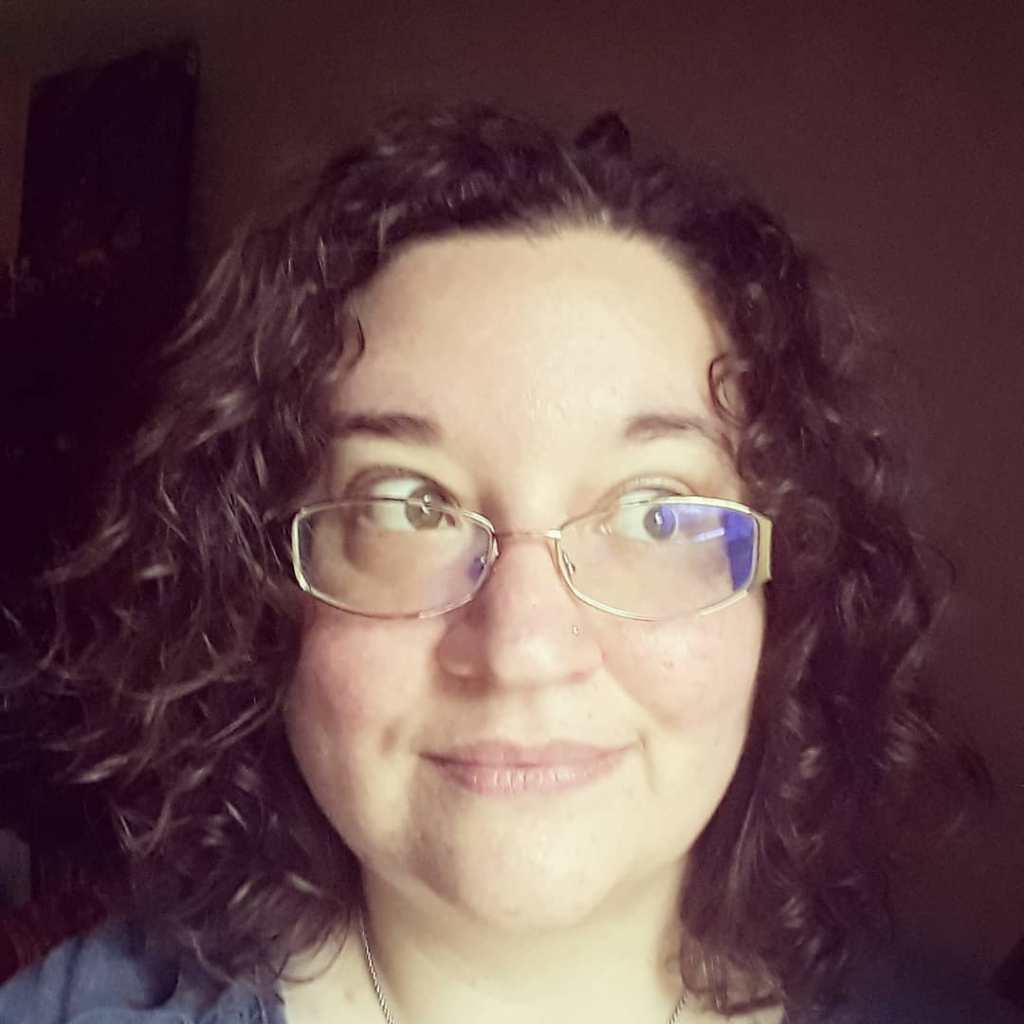
CARLOTA: Definitely. Thank you so much. This question is a little more related to literature. And it is, do you think literature nowadays is diverse enough? Or do we still have a long way to go?
ALAINA: I think that the research backs me up here in saying that, unfortunately, we do still have a long way to go. The Cooperative Children’s Book Center collects information on children’s books specifically —which is more my area of expertise— and shows that we don’t have a lot of diverse books. More characters are animals than People of Color. There is less than one percent of Native First Nations and Indigenous characters in children’s books. There are somewhere between three and four percent LGBTQ characters in books. Somewhere between three and four percent disabled characters. That’s a tiny percentage of all books published.
The numbers are similar for what they do collect on authors sharing identities that you might look at how many books are written by Black authors. It drops, you know. It decreases the level that there are more Black characters, but not many of them are being written by Black authors. I do think that the research backs up that we have a long way to go. That’s not to say there hasn’t been progress. I think this year’s American Library Association Youth Media Awards were one of the most diverse awards in its history —with the first Native Caldecott winner and many other amazing accomplishments from a variety of writers and illustrators.
But that’s not to say that we shouldn’t keep doing this work. I believe that we haven’t reached a point where everyone can see themselves in a book or where you can pick up a book and expect to see a diverse cast and feel like you’re reading a book that’s free from stereotypes and reflects the world. I think a lot of marginalized authors have been fighting for this for a long time. And that’s why we’ve seen progress because marginalized authors and marginalized people who work in libraries working in bookstores, publishing houses, and literary agencies have been advocating for this for decades.
ADRIANA: Yeah, speaking from the perspective of a school librarian. We’ve indeed made a lot of progress. I see more companies are paying attention to things like disability and neuro divergence as a form of diversity, which I didn’t see in previous decades. We are making good progress there. As Alaina said, a lot needs to be done, especially with multiple intersectional marginalities. For example, I like to create lists of books by autistic authors to recommend to librarians and teachers, and most of them are by white women who are autistic. I have a few that I’ve found by Black autistic authors and Asian autistic authors. But they’re few to no books that have been written by Latinx autistic authors or Native or Indigenous authors who are also autistic.
So we need to keep pushing to get more stories out there because, as I alluded to with my diagnosis story, and how it was very different for me being Mexican and Puerto Rican and having autism. It’s a different experience —I think for people like myself, compared to someone who’s white and autistic. The more stories we can get with diverse perspectives, the better it will be and help the diagnosis rates. If we have more of these stories of nonbinary autistic characters and things like that, it’ll be easier for people to see themselves and their kids and their relatives in these stories. And again, it just helps with visibility, like autism and disability.
CARLOTA: Absolutely, yeah. Thank you so much for that. This is kind of a follow-up question. I just wanted to know if there are any fictional autistic characters that you can recall? Could you tell us about them?
ALAINA: I love books by autistic authors that have autistic characters. Corinne Duyvis, who Adriana mentioned, coined “Own Voices,” has some great books with autistic characters. A.J. Sass has a middle-grade book coming out called “Ellen Outside the Lines.” Jen Wilde, Marieke Nijkamp, all of them are autistic authors who have books with autistic characters that I find very compelling. I will say that, as Adriana mentioned, it’s hard to find books with autistic characters that are not written by white people about white people. So that’s one place where I’ve seen many gaps, but I have seen more autistic fictional characters, and the ones that I tend to connect with were created by or heavily shaped by autistic people.
ADRIANA: Yeah, and to extend it a little bit outside the realm of books. I do like that we see a few more representations of autism and other forms of media. And the person I thought of when I saw this question is the character of Princess Entrapta from the “She-Ra and the Princesses of Power.” She’s such a great character. And you know, the creator said, ‘Yes, she’s autistic.’ I think she’s a fascinating character. From what I’ve read in representations of autism in the media, I feel we get a lot of mad scientist or absent-minded professor characters who aren’t intentionally written as autistic. You can still see it because they lack those social skills and have these narrow special interests. So for me, I see people like in Entrapta or Doctor Strange from the Marvel movies, and I relate to them and think they’re good characters. And we need more of that in other forms of media too. So we can have autistic characters everywhere.
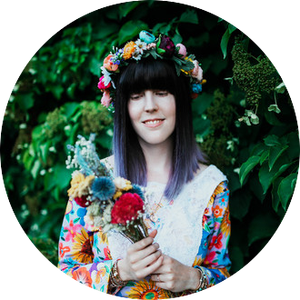
CARLOTA: Absolutely. My next question is also related to this one. And it’s a more profound one, which is why do you think there are so few fictional autistic characters?
ALAINA: I think a lot of it has to do with that perception that autistic people can only be a certain set of characteristics. I know many characters who autistic people relate to on TV, who many of us will say, ‘We think that that character is autistic.’ Often, the creators have not canonically identified them as autistic, but people see that in the character. One example would be Tina Belcher from “Bob’s Burgers.” Every time I talk to an autistic person, we all agree, like, ‘She’s definitely autistic.’I think there’s a lot of stigma against labeling someone that way because it opens you up to criticism that people might start to pick apart the representation if you were to label your character as autistic, especially in a popular TV series.
Generally speaking, TV shows and films are more mainstream, widely known, and widely discussed than books unless the book happens to be a lead title and popular. A lot of people watch TV and watch movies. So there’s the fear of backlash and criticism if they were to get something wrong in some way. And they would have to back that up somehow and explain why they created an autistic character who is empathetic and cares about people’s feelings, or why they created an autistic character who is a little socially awkward but has a strong core group of friends. I think it’s a challenge for creators.
In general, there aren’t as many autistic people working in these industries who can bring that to the table. I think people do create characters who are autistic when they are not, but it often leads to inauthentic and hollow representations. There are just so many barriers, like Adriana mentioned. The unemployment rate is high for autistic adults. It makes it hard for autistic people to get into screenwriting, filmmaking, producing or directing. And that’s why we have people out there creating inauthentic or hollow or just no representation because we’re not the ones in the writer’s room saying to ourselves, ‘Yeah, let’s go for it and make Tina autistic,’ because she clearly is.
ADRIANA: I would also add that I think there’s this interesting idea that a lot of people have that’s incorrect that autism is not that prevalent or that it doesn’t apply to them, personally. This is more from the library side; I’ve talked to some autistic authors who have unfortunately been met with resistance. When they try to share their books with people, they’ll sometimes be told, ‘Oh, I don’t need a story like that in my library. I don’t have any autistic kids. I don’t need it.’And it does everyone a disservice. I think for us to cut off these stories and say, ‘Oh, only people with autism will like autistic stories,’ when, at the end of the day, a story about finding out who you are, or discovering what you should do with yourself are universal stories. They just happen to be told with autistic characters.
Unfortunately, I think some people cut themselves off because they don’t think that they will relate to it at all, which is very sad. But I do think, hopefully, it’ll change in time that we’re getting more creators. I always like to share the story of Dan Harmon, who created the TV show “Community” because he created the character of Abed and made him autistic. And in writing the character, Dan discovered that he was autistic and got diagnosed. It’s this thing that I think is fascinating, that the act of creating this character hit a light bulb in his head and made him realize, like, ‘Hey, this could be me.’ I think that’s one of the great things about this kind of storytelling. And the more we talk about autism, the more we can get those moments where people are like, ‘Oh, yeah, I know someone who’s like that.’ And they’ll start to recognize that it is a part of the world and something they need to think about. It’s not something that’s only for parents who have autistic kids. These kinds of stories can be for everybody.
CARLOTA: Yeah, yeah. So this question I’ve been thinking about for some time now because you both kind of answered it already. But I would like to ask anyway, just to get a definite answer from you both. And the question is, would you object to an author who is not autistic creating an artistic character in one of their works?
ALAINA: I wouldn’t say that I outright object to it across the board. But I will say that I believe that when you’re writing a point of view character when it’s the main character or somebody who has a strong point of view in the book, it should be coming from that lived experience of marginalized identity. So I wouldn’t necessarily object to an author who created a book where the best friend is autistic, and they are not. Or where the love interest is autistic, or perhaps the parent of the main character or a teacher, a mentor, a friend, a classmate, as long as they did the work necessary to make sure that that representation was authentic, and not harmful. Ideally, by hiring sensitivity readers who are autistic to read the book and working as closely as possible with autistic people. And a variety, because we’re all so different, to make sure that that representation is accurate.
When it comes to the point of view characters, that’s where it matters the most because you want your world to be diverse. As a creator, you want your world to reflect the world, but your point of view characters shouldn’t be written outside of your lane, outside of your lived experience. I’m white, I would never write a person of color as a point of view character, that’s not my protagonist, but I am autistic. I would feel comfortable writing a point of view character who’s autistic or a side character or a love interest or a parent because that lived experience is so important. And that’s where I would say it’s possible and vital to include autistic people in your diverse world, just to make sure that you’re doing it for the right reason and with the right intentions. And that your execution is good and that people have read through your book, a variety of people have read through your book and haven’t caught anything that you might not have noticed, because you’re not autistic.
ADRIANA: Yeah, I agree with Alaina there. I like to say that I don’t object to authors writing autistic characters. I object to them writing bad autistic characters. I don’t want a bad representation out there in the world because it can be harmful and lead to bullying or something for kids who are autistic —if there’s this portrayal that isn’t quite correct in the books. And so, as Alaina said, if you want to have a side character or someone who’s autistic, I think people should do that.
But as she said, they need to do their research. They need to put in the work for it. I do hope that it’s something that publishing houses and production companies are aware of because I would hate for them to say, ‘Well, I made one movie about autism, so I don’t need to make any more.’ And they hired someone who wasn’t autistic to do it. That’s always my fear: if we don’t prioritize the people who are writing from their own experiences, we might miss out if it becomes this quota type of thing where they only want to do one of something, and then they don’t care to publish any more books besides that one. So it’s something I would encourage writers to do if they want to. Again, have those side characters (who are autistic or disabled), but I would prefer the main character and those point of view characters to be written by people with lived experience.
CARLOTA: OK, thank you. My next question is, what fictional character have you come across that you think is most like yourself?
ALAINA: I honestly think I’m a cross between a few characters. I think I’m a cross between Louise Belcher (“Bob’s Burgers”) mixed with Lorelai Gilmore (“Gilmore Girls”), mixed with Lara Jean Song Covey, from Jenny Han’s “To All the Boys I’ve Loved Before,” mixed with a little bit of Wade Wilson, who is Deadpool.
ADRIANA: I love your answer. That’s great. That’s appropriate that you chose Louise. I was going to say from “Bob’s Burgers” that I was Tina when I was a teenager. I was that awkward, weird kid who had a crush on everyone. So she’s totally one who I relate to.
The other character is from a little independent video game called “Night in the Woods.” The character’s name is Margaret Borowski, and I relate to her because she’s this college dropout who doesn’t quite know who she wants to be and what she wants to do. I related to that so much because I had a similar experience in life where I tried to go off to college, and it didn’t work out the first time. I had to go home and recoup and do it again. I related to that a whole lot in terms of the experiences. I think for the autistic one, I definitely go with Tina. I am so awkward.
CARLOTA: Well, this one is not about who you relate to most. But it’s if you could meet a fictional character from any book or movie, who would it be? Because that’s an interesting one, in my opinion.
ALAINA: Yeah, that’s probably about the hardest question.
CARLOTA: Yes. You can only pick one.
ALAINA: Yeah. I promise. That’s so hard. I feel like there are so many characters out there who are so compelling. I’m blanking!
ADRIANA: I guess I can go ahead and talk then while she thinks about it. This was also a hard question for me to try and narrow down and figure out. I ultimately would like to meet (Rick) Deckard, which is Harrison Ford’s character in “Blade Runner.” It’s this weird sci-fi 80s movie. I like the cyberpunk aesthetic to it all. I think something is fascinating about the idea behind “Blade Runner,” which is that these replicants are like fake humans, but they’re also designed to be more human than human. And they end up being the ones with all the empathy and humanity, and real humans are off being terrible people. So I guess, in a way, it is something autistic people can relate to. I think there’s something so fascinating about this idea of what makes you a person. And I think that it would be fascinating to talk to someone in that universe and see what they think about humanity and what makes us human.
ALAINA: I love that. And I think that I’m going to narrow mine down and say that I would love to meet Jane from “One Last Stop” by Casey McQuiston, which I just read an advanced reader copy of. Maybe it’s because I just read the book, but I think she’s a fascinating character. She’s so layered and speaks to what it takes to be yourself and the courage to be yourself and speak out about injustice during a period where that was difficult for people, especially for people who are both LGBTQ and Asian-American, which she is. I feel those are the types of characters I tend to be drawn to —characters who have the courage or maybe just have no other choice because they can’t see any other way but to be who they are and to speak out about injustice. Any story, movie, TV show, you name it, I’m going to find the character who’s most like that, and that’s going to be my favorite character.
CARLOTA: Yeah, absolutely. Well, funny thing. I know none of the characters you just mentioned, but I will just go on. My next question is, what do you think is an underrated work of literature that you could recommend?
ALAINA: Well, the book doesn’t have an autistic character, but I really enjoyed “Ana on the Edge” by A.J. Sass, who is an autistic author, and who I mentioned earlier does have an autistic character coming out in a future book called “Ellen Outside the Lines.” “Ana on the Edge” is also a middle-grade about a nonbinary kid who is a competitive figure skater. Ana is coming out and coming to terms with their nonbinary identity; figuring out their pronouns, what they might be in the future, what name she wants to go by. I absolutely loved that book. I mean, I just think that it was so engaging, and Ana was such a great character, and her world was populated by so many other rich characters and environments. San Francisco’s setting feels alive to me, as somebody who’s literally visited San Francisco once, but I felt like I was there while I was reading. That book and a lot of middle-grade contemporary fly under the radar deserve a lot of love.
ADRIANA: Yeah, that’s a great answer. Yeah, that’s a really good book. And yeah, I’m also excited to see the next one, “Ellen Outside the Lines.” I’m excited to see what they do with that one. This question was hard for me to figure out. Like just one book, because I feel there are so many good books out there. I could recommend so many.
I cheated on this question and said that I wanted to talk about video games instead. I am a big supporter of video games. And I gave a talk recently where I encourage teachers and librarians to use video games more often in the classroom. I feel that video games are great at inspiring empathy because they have good stories, just like a good book. But there’s also this extra bit that you get from the interactive elements of video games. So, I did recommend that teachers consider those types of narratives and how they could use them in the classroom to show your students a perspective that might be different from what they know.
And one of the games I like to recommend is a little indie game called “What Remains of Edith Finch,” where you walk around this old, abandoned mansion. You get to see the story of the Finch family, and there’s this family curse, and you get to see how they all died —these sad, horrible deaths. But it’s a fascinating experience. It’s a video game that people tend to describe as a walking simulator because it’s not like a video game where you have to run around and punch things. You are exploring the world and getting the story. I think video games like that are usually indie. They’re usually very small, they don’t get a lot of attention. I think that they are wonderful. I would love someday to have someone create a video game like that with an autistic character. It would be this wonderful experience to be able to say, ‘OK, let’s read a book about an autistic character. And then let’s play this video game where you get to be them and have this double whammy of empathy for people.’ So that’s my kind of cheating answer —I think video games are underrated.
CARLOTA: No, totally. I am not a great video game player. The best I’ve ever played is Mario Kart, but I get your point. And unfortunately, this is our last question. And it strays a little bit from the last questions I’ve been asking. But I’m really excited about your answer. Where do you hope to be in 10 years?
ALAINA: I hope that in 10 years, this pandemic is over. I hope to be in a world free of…or maybe not free of COVID-19, but that it’s fallen by the wayside in terms of significant deaths and community spread. And I hope, on a personal level, to be living with my wife and our cat. I hope that we have a third cat by then and probably a few kids. And I’d like to have published a few books, at least one book, ideally a young adult or middle-grade book with autistic characters in it. And I’d like to teach more and do more public speaking. The bulk of my work right now is my day job as a communications manager. And I love it. I’m also finding that I really enjoy teaching at the college level and that I enjoy public speaking, podcasting, workshops, and webinars. I’d love to be doing more of that in 10 years.
ADRIANA: Yeah, I have a lot of similar things to Alaina there. I also hope to be an author of at least one published book. I tend to lean towards like picture books in middle grade, but I want to publish something with autistic characters. I also have this dream that eventually, I’ll be a professor somewhere at some nice school and teach classes to kids and teach people about autism and mental health and all of these essential subjects. I hope that as a society in 10 years, we have gained a better understanding of autism, mental health, and disabilities. I hope things are easier and we get to the point for people to help each other. I think a lot of my work comes down to this idea of helping people and making life easier for others. I had a hard time in my childhood, and I feel like other kids and adults should not have to experience that. That’s my hope —that the world will be a better place. And I’ll still be around talking to people about these critical issues. Totally.
CARLOTA: Thanks so much for that. Yeah, that was an amazing answer for both of you.
If you’re interested in pursuing a media career, make sure to visit us at latinitasmagazine.org for more information. Thank you guys so much for tuning in to this episode of “20 Questions With,” we’ll see you next time!
About the host:
Carlota Vásquez was born in Bogotá, Colombia, in 2005. She has been writing since age seven, and she has been doing so in English since age 12. She is currently a high school student, as well as a hard-core feminist and an aspiring fantasy writer.
Want to read more stories like this? Please give us your feedback here!
Latinitas Magazine is a department within Latinitas, a registered nonprofit. Readers like you fund us, so please consider donating today. Thank you!

